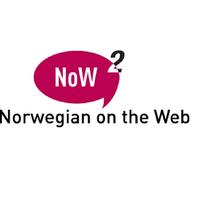5.11 Diktat: Skolen i Norge
Dictation|the school|in|Norway
5.11 Diktat: Schule in Norwegen
5.11 Dictation: School in Norway
5.11 Dictée : école en Norvège
https://www.ntnu.edu/now2/5/lytte
5.11 Диктант: Школа в Норвегии
5.11 Диктант: Школа в Норвегії
I Norge begynner barna på skolen når de er fem eller seks år gamle.
in|Norway|start|the children|at|school|when|they|are||or||years|
|Noruega|empiezan|los niños|||||||||años|viejos
In Norway, children start school when they are five or six years old.
De sju første årene på skolen kaller vi barneskolen, og de tre siste årene kalles ungdomsskolen.
|sieben|||||nennen||||||||heißt|
the|seven|first|years|in|school|call|we|elementary school|and|the|three|last|years|is called|middle school
|||años|||||escuela primaria||||||se llama|escuela secundaria
We call the first seven years at school primary school, and the last three years are called secondary school.
Barneskolen og ungdomsskolen kaller vi grunnskolen.
the elementary school|and|the middle school|call|we|primary school
||escuela secundaria|||
We call primary school and secondary school primary school.
Grunnskolen er obligatorisk og gratis.
the primary school|is|mandatory|and|free
la escuela primaria||||
Primary school is compulsory and free.
På ungdomsskolen får barna karakterer, men på barneskolen får de bare kommentarer.
||bekommen|||||||||Kommentare
at|middle school|get|the children|grades|but|in|the elementary school|get|they|only|comments
|||||||escuela primaria||||
Etter grunnskolen er det vanlig å begynne på videregående skole, men det er frivillig.
|||||||||||||freiwillig
after|primary school|is|it|common|to|start|in|high school|school|but|it|is|voluntary
|escuela primaria||||||||||||
After primary school, it is common to start upper secondary school, but this is voluntary.
Skolen er gratis.
the school|is|free
The school is free.
Videregående skole er delt opp i ulike studieprogrammer.
weiterführende|schule||geteilt|||verschiedene|Studienprogramme
upper secondary|school|is|divided|up|into|various|study programs
Upper secondary school is divided into different study programmes.
Ni av studieprogrammene er yrkesfaglige og gir utdanning i praktiske fag.
||die Studienprogramme||||||||
Nine|of|the study programs|are|vocational|and|provide|education||practical subjects|subjects
||||||da|||prácticos|
Nine of the study programs are vocational and provide education in practical subjects.
Tre av studieprogrammene er studieforberedende og har mer teori.
||||studienvorbereitend||||
Three|of|the study programs|are|college preparatory|and||more|theory
Three of the study programs are study preparatory and have more theory.
De som går på skolen i Norge, blir kalt elever, mens de som tar høyere utdanning, kalles studenter.
those|who|go|to|school||Norway|are called|called|students|while|they||take|higher education|education|are called|
||||||||||mientras|||||||
Those who go to school in Norway are called pupils, while those who take higher education are called students.
Elever i Norge bruker ikke skoleuniform, og det er heller ikke vanlig at elevene får mat på skolen.
|||||Schuluniform||||||üblich||||||
Students|in|Norway|use|not|school uniform|and||it|either|not|common|that|the students|get|food||school
alumnos||Noruega|||uniforme escolar||||||común||los alumnos|reciben|||
Pupils in Norway do not wear school uniforms, and it is also not common for pupils to be fed at school.
挪威的学生不穿校服,学生通常也不在学校吃饭。
Det er også uvanlig å sende barna på privatskole i Norge.
|||ungewöhnlich||senden|||Privatschule||
it|is|also|unusual||send|the children|to|private school|in|Norway
It is also unusual to send children to private school in Norway.

